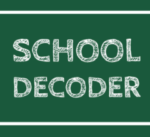Today, “Betsy DeVos Made Me Want to Run for School Board,” an NPR Ed article by Anya Kamenetz, made the social media rounds among my people (my people being a national crowd tending toward obsession around the topics of education, democracy, and politics). Kamenetz’s brief piece, featuring stories from four young(ish) people who have been inspired to be elected to their town’s school boards, fed my own deep desire to do the same. I would love to participate in a Providence school board election. I would actually just like to be able to vote in a Providence school board election, for myself or for any candidates that felt that they had what it takes to guide our city’s education system in collaboration with school department leadership, the Mayor’s office, the City Council, the general public, the teachers, and most importantly, the 20,000+ students that attend public school in Providence, Rhode Island.
But neither I nor anyone else can run to be elected as a school board member nor vote for anyone, because we don’t have an elected school board. Providence has an appointed school board. This means that once a year, citizens are invited to apply for spots via an online application (link leads to forms for the applications that were due in December 2016–applications which presumably have led to the selection of candidates who have yet to be announced). The four members of the School Board Nominating Commission (names here) review the applications and, according to criteria that are not publicly available, select some of the applicants to speak at a public forum. Some or all of those candidates are then interviewed by the Mayor, who selects nominees who then must be approved by the City Council.
I strongly believe that our city’s system is undemocratic and antidemocratic. At the same time, elected school board have their significant problems. I want to sort out why we have the system that we have, and why our current system of mayoral control limits the power of the school board. If my belief that elected school boards are a better option from a democracy-honoring point of view, I’ll document what it would take to change our system. I’m also hacking away at this with an open mind; I acknowledge that I may conclude that our current opaque system may allow other advantages, such as a school board that is representative of students and their families and accessible to any applicant without the considerable expense and effort of an election.
I’m focusing on school boards because they’re a useful lens through which to look at school systems. With variations, school boards hold the power, and therefore the ways people gain access to them matter greatly. However, in a mayorally controlled system such as that in Providence (actually, especially in Providence for reasons that we’ll explore in subsequent posts), when decision-making is owned by the mayor, the school board is far less powerful. So the question is, really, who and what should control local school systems? Do cities such as Providence (and New York, New Haven, Los Angeles, Philadelphia, Chicago, and others) require some form of centralized control of public schools, even though the vast majority of communities nationwide elect school board members?
So, along with posts on other topics, I’m going to share information and perspective on the benefits and drawbacks of elected and appointed school boards, thoughts about school systems that are under mayoral control (that is, Providence and other cities with appointed school boards), data about the prevalence of each sort of school board nationally, and other related topics.
